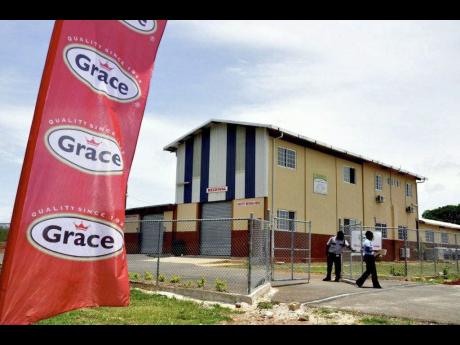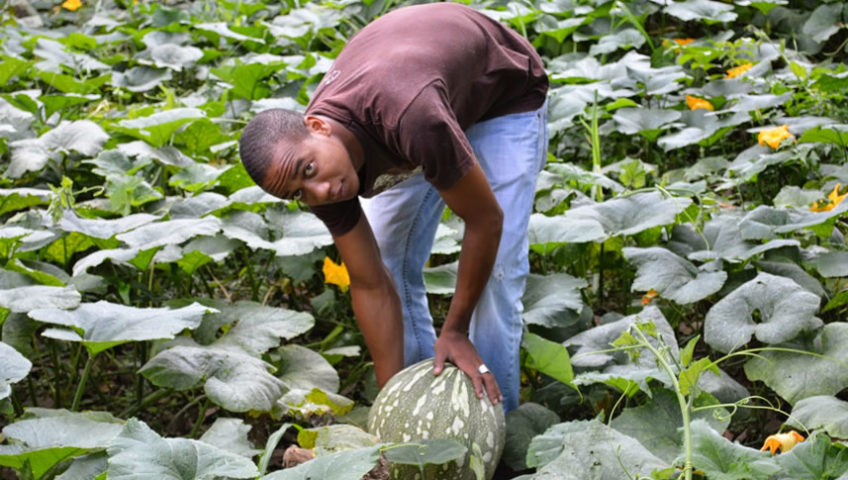
THE AGRO-INVESTMENT Corporation (Agro Invest), a business facilitation unit with the Ministry of Agriculture which handles several multi-acre agroparks across the island, indicates that it is set to significantly increase acreage for farming in the next 36 months, even as it increases its call to the private sector to invest in the sector.
Speaking last week in Kingston at a forum staged by Jampro, Chief Executive Officer of Agro-Invest Sylburn Thomas said new parks under planning include greenhouse and livestock agroparks, both based on a clustering and sharing economy.
Agro Invest is also planning an organic agriculture and nutraceutical agro-park with isolation and quality management systems attached. Thomas described neutraceuticals as a growing market valued at US$248 billion in 2017. Of this amount, 60 per cent accounts for dietary supplements and 40 per cent comprising functional foods and beverages.
Jamaica’s agro-parks’ initiative was implemented in 2012 out of the need to increase agricultural production and i mprove the quality of produce for the domestic and international markets. There are currently nine agro -parks established across the island. Jampro said that an additional 21 are planned for establishment by 2020.
Thomas said that Agro Invest will also be spearheading the divestment of the AMC Complex, which houses its offices, processing and warehousing facilities for several ventures on Spanish Town Road in Kingston.
New projects slated for execution in the next 36 months also include the Essex Valley agroeconomic zone in St Elizabeth comprising 1,700 acres.
Thomas said that Agro Invest is also planning an agriculture economic zone in south Clarendon and south St Catherine comprising 4,160 acres. He said Agro Invest is currently seeking public-private partnerships for the construction and operations of packing and processing facilities
In total, he said, 500 acres of agro-park will be developed in 2018, 2,000 acres in 2019 and another 2,500 acres by 2020.
TARGET IMPORT SUBSTITUTION
The Agro Invest CEO is encouraging private-sector members to target i mport substitution in light of Jamaica’s food import bill which, he noted, “has moved from close to hitting the US$1-billion mark in 2014 to just under US$850 million in 2017.”
He said investors will benefit from support services in the agropark business, which is “an area of intensive agricultural production which seeks to integrate all facets of the agricultural value chain. These are pre-production, production, harvesting, postharvesting and marketing”.
Thomas said the parks feature irrigation and drainage infrastructure, quality management systems, farm layout and road networks, technical onsite support, business facilitation and market linkages support.
The parks are a sharing economy, including farm equipment, minimal processing facilities, security and insurance.
Thomas said there was also land available in existing parks for investment. This includes Spring Plains agro-park in Clarendon comprising 943 acres of arable land, with 100 acres earmarked for Youth in Agriculture and 168 acres currently available for lease.
At Ebony Park, St Catherine, the agro-park comprises 1,197 acres of arable land and there are 310 acres currently available for lease. At Amity Hall, also located in St Catherine, there are 2,340 acres of arable land, and 2,019 acres are now available for lease.
At Plantain Gardens River in St Thomas, the agro-park comprises 253 acres of arable land and of that amount, 70 acres are currently available for lease, Thomas said.
The aim of the parks is both for import substitution and internal market focus, he said, noting that farmers were being encouraged to grow onions, Irish potato, raise livestock (small ruminants), as well as cultivate cassava, fruits and vegetables, tomatoes (for paste), and peas and beans.
For products which can be produced in, and exported from, the agro-parks, he listed sweet potatoes, peppers (Scotch bonnet), yams (using minisett technology), pumpkins, dasheen, herbs and spices, neutraceuticals, fruit tree crops (mangoes, avocados, graviola) and Irish potatoes.
The Agro Invest head noted that in 2016, Irish potato imports were valued at more than J$1 billion. As for sweet potato production, Thomas said there was a high demand internationally, with the United Kingdom importing US$114 million worth of the tubers in 2016. Sweet potatoes, he said,
can also be processed to make flour, fries, chips and pastry.
Thomas said yams also had high export potential, with “consistent high international demand and processing potential.” Total US imports of yams totalled 47,430 metric tonnes in 2016, of which Jamaica accounted for 15,686 metric tonnes or 33 per cent.
The Agro Invest CEO said that for produce and fruits, there is also a lucrative market locally for fresh produce and many processing options exist.
As outlined by the Government, the objective of the agro-parks is to bring underutilised rural land and labour into a more efficient agricultural production system. Crops should be produced at competitive prices to facilitate import substitution, enhance the agricultural supply chain, deepen industrial linkages, and increase food security.
The Jamaica Information Service indicated in September 2017 that more than 3.5 million kilograms of produce had been harvested as at that date from the parks. Crops included onions, peppers, vegetables, potatoes, yams, melons and pineapples.






